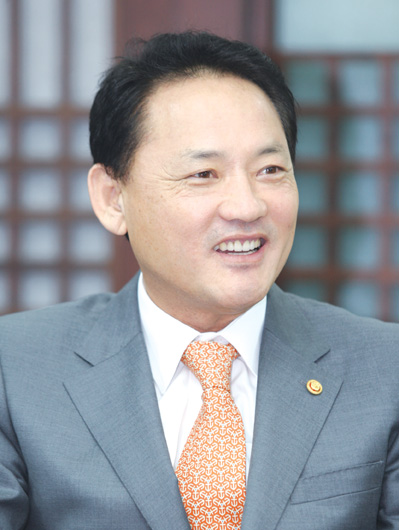Advancing ¡°Green Tourism¡±
Government to turn tourism green to match its low-carbon, green growth strategy; sponsors FEALAC in Seoul

The Ministry of Culture, Sports and Tourism made up a basic plan for ¡°green tourism¡± in tune with the government¡¯s low-carbon and green growth strategy, the ministry announced recently.
The plan involves the remodeling of the tourism industry with a low-carbon and green growth focus as called for in the government policy to reduce carbon emissions from the air by reducing the use of fossil fuels and other measures to make the environment clean.
The ministry sponsored the 2nd FEALAC, an international symposium on green tourism, on May 12 with the Korea Tourism Organization (KTO) as the host at the Lotte Hotel in downtown Seoul. The meeting was designed to search for a new direction for the development of low-carbon, green growth by exchanging information on the success of ecological tourism.
Special Consultant to the UNWTO Hector Ceballos-Lascurain of Mexico, a renowned ecological tourism expert, who first coined the word ¡°Ecotourism,¡± delivered a keynote speech at the symposium on green tourism entitled ¡°The current state of global ecological tourism and its future prospects.¡± Three sessions followed the keynote speech, participated in by nine experts on ecotourism covering such subjects as the role of tourism to fight global warming and the role of governments to invigorate ecotourism and policies, along with samples of successes on ecotourism around the world. Experts came from such Central and South American countries as Costa Rica, Ecuador, Brazil and Paraguay. Asian countries included Japan, Malaysia, Korea, Indonesia, Thailand and others.
The ministry adopted the plan as the national vision for the next six decades and is working on setting up strategies to make the new vision part of the daily life of the general public based on a premise that green tourism will help environmental protection and, thus, economic growth. The tourism mode has been changing from the traditional patterns in the past to the ¡°physical experience¡± aspects involving such activities as sports, leisure, culture and ecology. The tourism industry is being regarded as a green growth industry with a great relation to climate change and the environment, a high value-added industry in the 21st century, the ministry said.
The ministry set up the tourism industry¡¯s vision and objectives of the green growth plan to invigorate green tourism in order to realize green growth and to expand green tourism from 20 percent in 2008 to 25 percent in 2014, resulting in a reduction of greenhouse gas emissions in the tourism industry by 30 percent by 2020.
The ministry plans to promote the growth of the green tourism industry in four major directions in consideration of its relationship to the government, tourism industry, tourists and regional societies. The four major directions include the building of the green system to be undertaken by the government, the expansion of green management to be managed by the tourism industry, green tours to be managed by tourists and the development of green tourism commodities by regional societies. The plan includes 15 tasks in three main areas.
The ministry will revise the Tourism Promotion Law, which will define green tourism and promote it through various measures including the establishment of ecology certificates given to qualified firms in the ecotourism industry to build an advanced base for the moves. The ministry will also operate consultation teams on the development of green tourism sites including consultations on means to promote the sites and guidelines.
The green tourism strategy also includes spurring R&D activities on building the green tourism base by introducing the point system for carbon reduction and the measurement of carbon footprints in tours to properly assess greenhouse gas emissions of the tourism industry.
The ministry also has been pushing ecological tourism by developing green tourism infrastructure and commodities through the 10 largest model projects to spur ecological tourism. This involves the restoration of cultural and ecological tourism routes extending for 1,200 km around the country by 2012 including resort resources to remake them as attractive points in green tourism.
The ministry plans to strengthen its public relations and marketing efforts through the homepage for green tourism to raise understanding. The ministry also plans to make booklets on green tourism for tourists to take actions on energy savings and to shrink their carbon footprint while on tour. The ministry will also step up relationships with emerging market countries to export green tourism models to boost Korea¡¯s image as a country strong in green tourism. All kinds of events will be held to expand the understanding of green tourism such as workshops, forums and expos so that information on green tourism can be jointly shared with other countries.
The ministry plans to plough 242.7 billion won into green tourism between 2010-2014 by making clear the organization responsible for the promotion of the 15 tasks in the three major areas of green tourism and to ensure that it takes hold in the country through a joint cooperation network with the civilian sector. nw
Minister Yu In-chon of the Ministry of Culture, Sports and Tourism.
3Fl, 292-47, Shindang 6-dong, Chung-gu, Seoul, Korea 100-456
Tel : 82-2-2235-6114 / Fax : 82-2-2235-0799